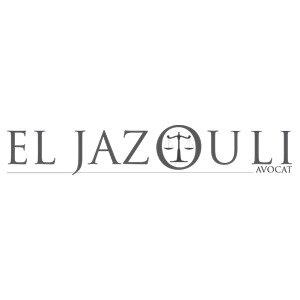Best Private Client Lawyers in Marrakesh
Share your needs with us, get contacted by law firms.
Free. Takes 2 min.
List of the best lawyers in Marrakesh, Morocco
About Private Client Law in Marrakesh, Morocco
Private Client law in Marrakesh, Morocco focuses on serving individual needs regarding personal wealth, family matters, tax planning, inheritance, property, and other legal issues affecting personal assets and family interests. This field covers both residents and non-residents and often addresses cross-border concerns, particularly for individuals with property or family members both inside and outside Morocco. Private Client lawyers commonly advise on estate planning, succession law, trusts, wills, family business structuring, philanthropy, and related transactions tailored to the local legal system.
Why You May Need a Lawyer
There are several common situations where individuals and families in Marrakesh may seek legal advice from a Private Client specialist. These include:
- Drafting or updating a will to ensure that property and assets are distributed in accordance with your wishes and Moroccan law.
- Planning for asset protection and wealth management, especially if you own real estate or have business interests in Morocco.
- Managing and resolving succession or inheritance disputes among family members.
- Navigating the rules of forced heirship or mandatory inheritance shares under Moroccan law, which may affect estate planning strategies.
- Handling family business transfers, restructuring, or succession planning.
- Supporting expatriates and non-Moroccan nationals with cross-border estate or family matters.
- Addressing issues of taxation, including local and international tax implications of gifts, inheritance, or property ownership.
- Advising on powers of attorney, guardianship, or care arrangements for elderly or vulnerable family members.
Given the nuances of Moroccan law and customary practice, tailored legal advice can protect your interests, avoid costly disputes, and ensure full compliance with local regulations.
Local Laws Overview
Private Client matters in Marrakesh are subject to a combination of Moroccan statutory law, Islamic jurisprudence (Sharia), and customary practices. Some of the most relevant local legal features include:
- Inheritance Laws: Moroccan inheritance law is largely governed by the Family Code (Moudawana), which implements strict forced heirship rules - relatives are entitled to mandatory shares specified by law, and testators have limited freedom to distribute assets at their discretion.
- Wills: Moroccan law permits the creation of wills, known locally as "wasiyya," but only a portion of an estate can be freely bequeathed (usually up to one third), with the remainder assigned to fixed heirs.
- Cross-Border Succession: Foreign nationals or Moroccans with property abroad may face complex jurisdictional issues. Moroccan law may apply to local assets even if a foreign will exists.
- Marriage and Family Law: Matrimonial property regimes and succession rights are impacted by the Moudawana, which stipulates specific rules regarding inheritance by spouses, children, and extended family.
- Taxation: While there is no direct inheritance or gift tax in Morocco, property transfers can trigger registration fees, capital gains tax, or other fiscal duties.
- Trusts: Morocco does not formally recognize trusts as understood in common law jurisdictions, but other legal mechanisms may be available for asset management or protection.
Legal processes can be complex, often requiring notarized documents or administrative approvals. Engaging a lawyer can help ensure that all formalities are properly followed and your interests are secured.
Frequently Asked Questions
What does Private Client law cover in Marrakesh?
Private Client law in Marrakesh covers estate planning, inheritance, family wealth structuring, property transfer, wills, and related personal legal matters.
Are wills recognized in Morocco?
Yes, wills are recognized but subject to limitations - generally, only one third of an estate may be freely bequeathed, with the rest distributed by law to fixed heirs.
Can foreign nationals own property in Marrakesh?
Yes, foreign nationals can buy and own most types of property in Morocco, but there are restrictions related to agricultural land.
Do Moroccan inheritance laws apply to foreigners?
Moroccan law generally applies to assets located in Morocco, even for foreigners. This often means local forced heirship rules must be observed.
What happens if I die without a will in Morocco?
If you die intestate (without a will), your assets are distributed according to the Moroccan Family Code, with specific shares allocated to family members.
Can I disinherit a family member under Moroccan law?
Moroccan law imposes forced heirship; you generally cannot fully disinherit a close family member entitled to a legal share, except in rare, defined circumstances.
How are estates taxed in Morocco?
There is no separate inheritance tax, but transferring assets may trigger registration fees, capital gains tax, or notary charges.
Do I need a notary for my will or property transaction?
Yes, many documents, including wills and property transfers, require notarization and registration by a licensed Moroccan notary.
What is the role of the family court in private client matters?
Family courts oversee succession disputes, confirmation of inheritance rights, and enforcement of family law provisions within Private Client matters.
How can I minimize family disputes over inheritance?
Proper legal planning, clear documentation, open communication, and following required legal procedures are key to minimizing disputes. Consulting a lawyer early on is strongly advised.
Additional Resources
If you need more information or wish to consult directly, the following resources can be helpful:
- Moroccan Ministry of Justice - Offers information about legal requirements and official procedures.
- Notary Chambers in Marrakesh - Provides access to licensed notaries for official document preparation.
- Moroccan Bar Association - Can help you find a qualified lawyer specializing in Private Client law.
- Local Family Courts - Handles succession, inheritance, and family disputes.
- Embassies and Consulates - Offer guidance for foreign nationals dealing with cross-border or succession issues.
Next Steps
If you require legal assistance in Private Client matters in Marrakesh, consider the following actions:
- Identify your specific needs, such as drafting a will, resolving a family dispute, or planning asset transfers.
- Gather relevant documents - identification papers, property deeds, past wills, family records, or evidence of ownership.
- Contact a qualified Private Client lawyer or a notary in Marrakesh with experience in the relevant legal areas.
- Arrange an initial consultation to discuss your circumstances, goals, and any cross-border implications.
- Follow your lawyer's recommendations regarding formalities, document notarization, and court or administrative procedures.
- Regularly review your legal arrangements, especially when family or asset circumstances change.
Taking prompt legal advice safeguards your interests and ensures compliance with local legal requirements for you and your family in Marrakesh.
Lawzana helps you find the best lawyers and law firms in Marrakesh through a curated and pre-screened list of qualified legal professionals. Our platform offers rankings and detailed profiles of attorneys and law firms, allowing you to compare based on practice areas, including Private Client, experience, and client feedback.
Each profile includes a description of the firm's areas of practice, client reviews, team members and partners, year of establishment, spoken languages, office locations, contact information, social media presence, and any published articles or resources. Most firms on our platform speak English and are experienced in both local and international legal matters.
Get a quote from top-rated law firms in Marrakesh, Morocco — quickly, securely, and without unnecessary hassle.
Disclaimer:
The information provided on this page is for general informational purposes only and does not constitute legal advice. While we strive to ensure the accuracy and relevance of the content, legal information may change over time, and interpretations of the law can vary. You should always consult with a qualified legal professional for advice specific to your situation.
We disclaim all liability for actions taken or not taken based on the content of this page. If you believe any information is incorrect or outdated, please contact us, and we will review and update it where appropriate.
Browse private client law firms by service in Marrakesh, Morocco
Marrakesh, Morocco Attorneys in related practice areas.









